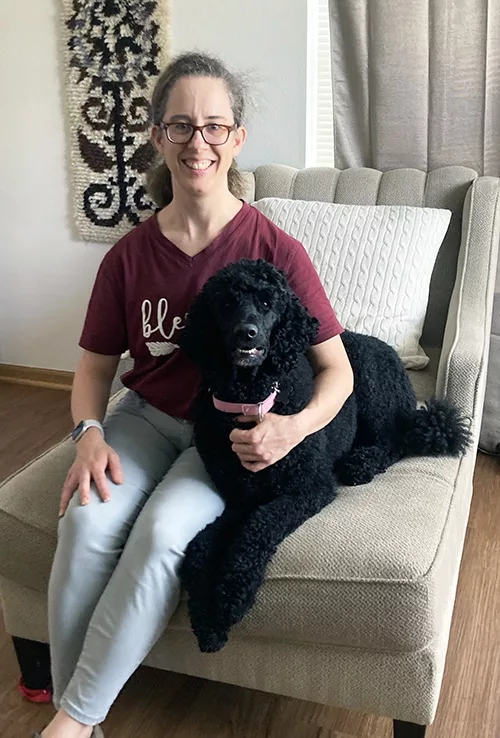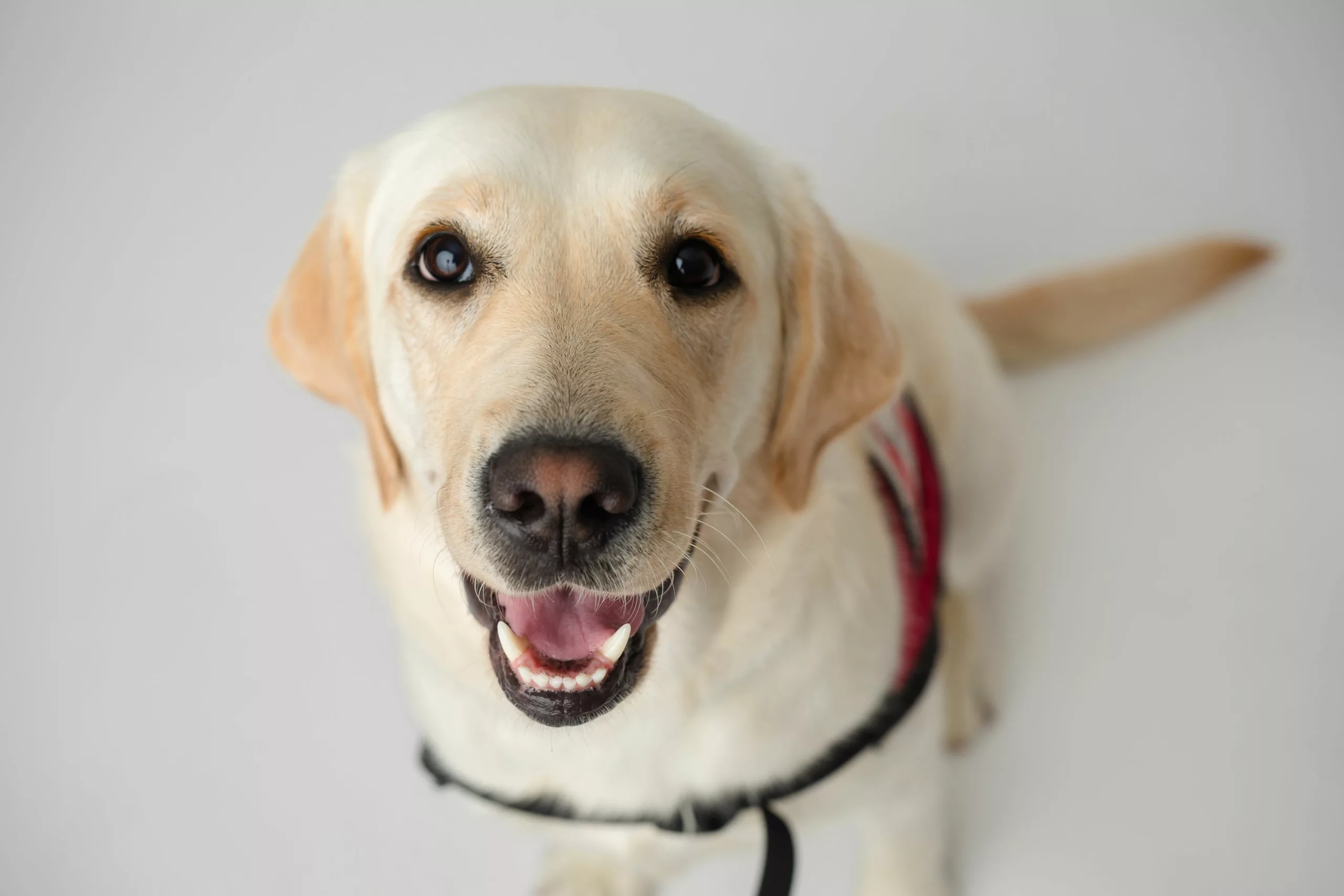“I just felt like life was kind of passing me by,” says Bridget, thinking back to how she was living following a traumatic brain injury she sustained in 2012. “I hit a point where things were untenable with some of the significant side effects I had from that TBI.”
Those effects included migraines that sometimes hit her “like a tidal wave,” often causing nausea and other neurological symptoms, possibly seizures. Chronic pain, as well as hypermobility issues, are other factors Bridget deals with. Her use of three fingers on one hand and two on the other was impacted by her TBI, so she says, “My dexterity isn't always the best.”
Overall, these symptoms caused a general sense of insecurity for Bridget. “Because I'm actually single and live alone at the moment, I always felt really vulnerable,” she states.
Even with physical therapists and occupational therapists suggesting Can Do Canines to her, Bridget did her due diligence. She says, “I did some research myself, and Can Do Canines had a sterling reputation.”
 Soon, a black Standard Poodle named Tamara came cruising into her life. Bridget describes the responsibility associated with the initial training process, saying that she felt like she had to “read the manual to understand how to use my Ferrari of a dog.” However, Bridget was willing to change lanes to let her Mobility Assist Dog take on some of the physical tasks in her life to ease the stress on her body. By picking up dropped items, getting a phone, retrieving a bag, or cleaning up items, Tamara allows Bridget to shift into a lower gear to preserve her energy.
Soon, a black Standard Poodle named Tamara came cruising into her life. Bridget describes the responsibility associated with the initial training process, saying that she felt like she had to “read the manual to understand how to use my Ferrari of a dog.” However, Bridget was willing to change lanes to let her Mobility Assist Dog take on some of the physical tasks in her life to ease the stress on her body. By picking up dropped items, getting a phone, retrieving a bag, or cleaning up items, Tamara allows Bridget to shift into a lower gear to preserve her energy.
Reducing her physical activity is not easy for Bridget, a registered clinical exercise physiologist who works part-time as an ambassador and educator for Lululemon Athletica. Additionally, she enjoys yoga, baking, and cooking. As a master organic gardener, she also cans many items she grows and is currently starting a small business as a small-scale organic farmer. Without Tamara, Bridget doesn’t know if she could handle the struggles of her symptoms and have such a positive outlook. She shares, “[Tamara] can help me with parts of tasks or sometimes the whole task that makes it such that I don't feel the burden and extra pain potentially and extra discomfort that comes with having to do all of those things on my own.”
Along with the physical help Tamara offers, her physical presence alone benefits Bridget. Noting Tamara’s affectionate, nurturing nature and her extra fuzzy, curly hair, she confides, “It's easier for me to physically find her and help ground myself if I need her.” Tamara equally relishes the closeness. “It's kind of like she tries to cradle me,” explains Bridget. “She’ll physically curl her body around me when she's standing next to me.”Whether there is physical contact or not, this pair shares a special bond, just as so many other Can Do Canines teams do. Bridget says, “Whenever there's this human-canine interaction, there's this altruistic, very unadulterated, like pure love that's exchanged. And so this is obviously a very unique opportunity for me, and I think ultimately the high point is how grateful I am for it.”
She hopes the “phenomenal network of individuals” that brought this “very specialized gift” into her life know just how “eternally grateful” she feels. Because according to Bridget, “It's life-altering.”
Thank you to all those who made this partnership possible:
Puppy Raiser — Sharon Bloomquist
Name-A-Puppy Donor — Medica Foundation

 Gucci Serves as a Model Autism Assist Dog for Kaden
Gucci Serves as a Model Autism Assist Dog for Kaden




